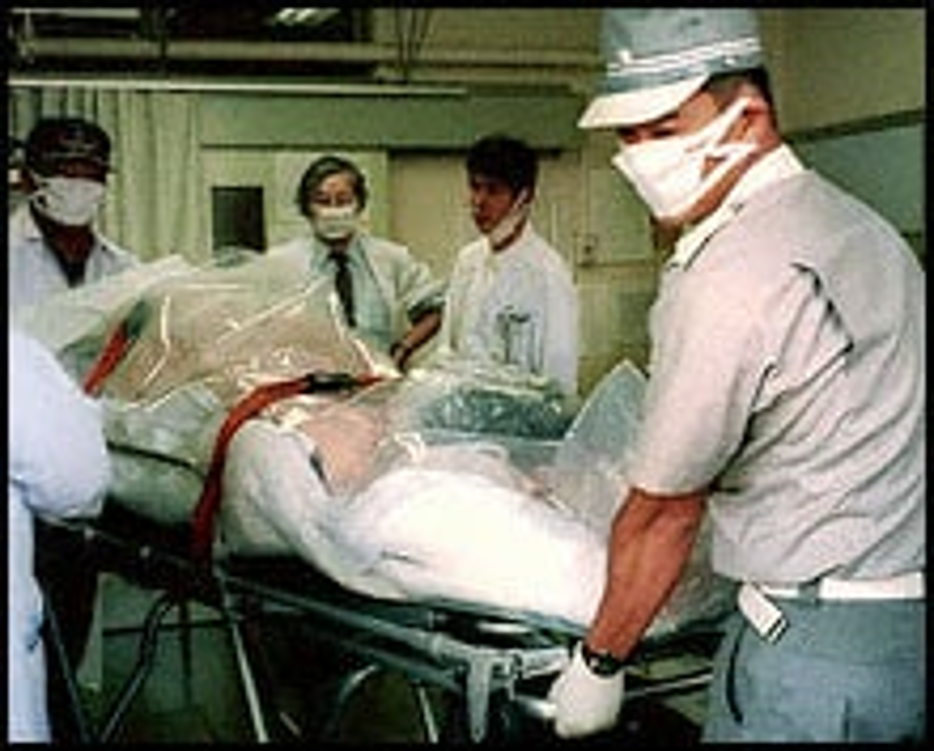Understanding Radiation Exposure: The Case Of Hisashi Ouchi And Broader Implications

Introduction
Radiation exposure is a critical topic that intersects medical science, safety protocols, and ethical considerations. Whether it occurs in healthcare settings or as a result of nuclear accidents, understanding the effects of radiation exposure is essential for safeguarding public health. This article explores the profound implications of radiation exposure, using the case of Hisashi Ouchi as a pivotal example, while also discussing broader themes of health, ethics, and nuclear safety.
1. The Hisashi Ouchi Case Study
Hisashi Ouchi was a worker at a nuclear facility in Tokaimura, Japan, who suffered one of the most severe cases of radiation exposure in history. In 1999, Ouchi was exposed to an excessive dose of radiation due to a criticality accident involving improper handling of uranium. His case is significant not only because of the extreme health effects he experienced but also for what it teaches us about medical treatment in such situations.
Ouchi’s ordeal provides critical insights into the immediate and prolonged effects of radiation exposure. It informs both medical professionals and safety regulators about the dire consequences of nuclear accidents. His case remains a key reference point in discussions about nuclear safety and emergency response protocols.
2. Health Effects of Radiation Exposure
The health effects of radiation exposure can vary dramatically based on the dose and duration. Short-term effects often include radiation sickness, which manifests as nausea, vomiting, hair loss, and skin burns. In Ouchi's case, he exhibited severe symptoms, including organ failure and extensive skin damage, ultimately leading to his death after 83 days in the hospital.
Long-term health effects can be even more severe. Survivors of significant radiation exposure face an increased risk of developing cancers, particularly leukemia and thyroid cancer. Understanding these health effects is vital for developing effective medical responses and public health policies.
3. Medical Treatment for Radiation Victims
Timely medical intervention is crucial for radiation victims. For instances of acute radiation syndrome, treatments may include supportive care, blood transfusions, and medications to mitigate radiation effects. Advancements in radiation therapy also provide insights into how medical professionals can treat radiation-induced cancers more effectively.
In Ouchi’s case, doctors employed various treatments, but the extreme nature of his exposure limited their effectiveness. This highlights the need for ongoing research into medical treatments for radiation exposure and the development of protocols that can be implemented in emergency situations.

4. Ethical Considerations in Radiation Exposure Cases
The ethical implications surrounding radiation exposure are profound, particularly when considering the responsibilities of organizations like the Tokyo Electric Power Company. After incidents like Ouchi's, questions arise regarding accountability, transparency, and the ethical treatment of affected individuals.
Ethics in medicine also play a significant role, especially when determining how to balance treatment options against potential long-term health consequences. Ensuring that victims receive appropriate care while holding organizations accountable for safety failures is essential for public trust and health.
5. Survivor Stories and Lessons Learned
Survivor stories, such as that of Hisashi Ouchi, offer invaluable lessons for the medical community and policymakers. Ouchi's tragic experience serves as a stark reminder of the dangers associated with radiation exposure and the need for stringent safety measures in nuclear facilities.
Lessons learned from Hisashi Ouchi’s case emphasize the importance of rapid response protocols, thorough training in nuclear safety, and transparent communication with the public regarding the risks involved in nuclear energy production.
6. The Broader Impact of Nuclear Accidents on Public Health
The impact of nuclear accidents extends far beyond the immediate vicinity of the incident. Long-term effects on community health can lead to increased anxiety, stigma, and healthcare costs for those affected. Incidents like the Chernobyl disaster have shown us the global implications of nuclear accidents, influencing international nuclear safety regulations and public health policies.
In Japan, the lessons learned from Ouchi's case and other radiation exposure incidents have led to reforms in Tokyo's nuclear safety regulations. These reforms aim to prevent future accidents and ensure better preparedness for emergencies.
Conclusion

In summary, understanding radiation exposure is vital for medical professionals, policymakers, and the public. The case of Hisashi Ouchi serves as a poignant example of the severe health effects and ethical considerations surrounding radiation incidents. As we continue to navigate the complexities of nuclear safety, ongoing dialogue and research are essential for improving our responses to such incidents. By prioritizing safety and enhancing medical treatment protocols, we can better protect individuals from the devastating consequences of radiation exposure.